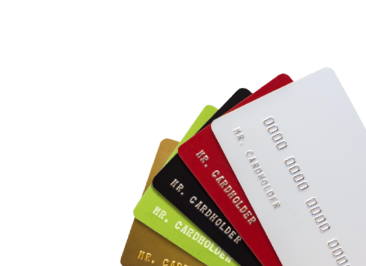5 Considerations Before Picking a Credit Card
Joe Lytwyn - 7.5+ Years Financial Exp. | 6th September, 2022

With the use of cash reducing, cards are increasingly the way to pay for goods and services. Whilst debit cards make it easy to pay using the money in your bank account, a credit card could be a convenient way to borrow money to make a purchase. This can be useful if you want to spread the cost, but you should only spend what you can afford to repay and consider the cost of interest and charges.
Although credit cards all work in the same basic way, their terms can vary considerably. So, it’s good to do some research to make sure you are picking the right credit card for your situation.
Here are our top 5 tips for choosing a credit card:
Perhaps you need an expensive item like a new washing machine and want to spread the cost. Or you want convenient access to extra funds in case of emergency. Maybe you simply want to build your credit history.
In any case, the first step is understanding what your needs are before choosing a credit card. This will help when comparing cards, to make sure you find the right card for your circumstances.
It’s worth paying close attention to interest and charges as these can vary considerably from card to card.
Every card has an APR, which is the percentage rate you would typically pay for the interest and standard charges over a year. Each card has a ‘Summary Box’ that contains all the standard information about the card in a set format. This can be helpful when comparing cards.
Although most credit cards work in a similar way, allowing you to spread the cost of larger purchases and build your credit history if used responsibly, many are designed with a particular purpose in mind. Here are some suggestions for types of cards that might help you narrow down your options.
| You might want to: | Type of credit card that might be suitable: | |
|---|---|---|
| Spread the cost of a large purchase | 0% purchase card | These have an introductory period with 0% interest on purchases. |
| Reduce the cost of existing debt |
0% balance transfer card 0% money transfer card |
Balance transfer cards have an introductory 0% interest period for balances transferred from other cards. But watch out for interest at the end of the promotional period or on balances not covered by the promotion.Money transfer cards are similar, but the funds are transferred to your bank account to pay down loans or overdrafts. |
| Get rewards for spending |
Cashback card Reward card |
These offer points or cashback when you spend. But may have higher interest rates or fees than other types of cards. |
| Spend money abroad | Travel credit cards | May offer good exchange rates when buying items in a foreign currency, but consider the interest rates and charges, which may differ from other card types. |
| Improve your credit rating | Credit building cards | Designed for people with no credit or a poor credit score. They usually have a lower starting credit limit and a higher interest rate than other types of cards |
Before deciding on a credit card, it’s worth doing a little bit of research to check who you’re dealing with. Make sure they are authorised and regulated by the financial regulator, the Financial Conduct Authority (FCA), and have a look at reviews on places like Google and Trustpilot.
Think about how you want to manage your account. What does their website or app offer? And if there’s a problem, how easy is it to contact the provider?
When you apply for a credit card, the provider will conduct a “hard search” of your credit file. Too many hard searches in a short time can impact your credit file.
Therefore, it’s a good idea to check your credit card eligibility before you apply. Eligibility checkers only make a “soft search” of your credit file, and these have no impact on your credit score. They can’t guarantee you’ll be accepted but can tell you whether you’re a good match for a provider’s lending criteria.
thimbl is a credit card that enables you to check your eligibility before you apply.
Did you find this article helpful?
Let us know how we can be more helpful
Please leave your anonymous feedback to help us keep improving.
About the author
7.5+ years financial experience







